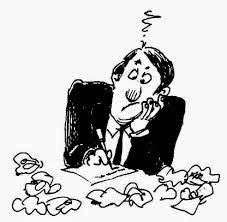I am reading a book on creative writing. At the end of each chapter it insists upon written assignments. What the...? I just wanted to read about writing, not actually write about anything. Well, the first assignment is to "brainstorm as many early memories as you can, writing them out in as much detail as possible, dedicating at least a paragraph to each."
The author of this book provides some "prompts to get you started" under headings such as "People" (your favorite or worst teacher is one example); "Places" (the inside of your house is another); and "Things" (an old photograph that sticks out in your mind is yet another). With the assurance that I should not feel restricted by the suggested categories, I now have to brainstorm for two hours. My alarm is set!
If we are talking about the absolute earliest memories I have, how about warmth, light and sound? That might seem odd but I occasionally get transported back to early childhood (like baby in a pram childhood) when I experience one of those sensations--if that is the right word for warmth, light or sound. Just the other day after lunch, I lay down on our big red leather sofa in the family room. I put a woolen blanket over myself (it was 26F outside) and a handkerchief over my eyes because sun was pouring through the French windows behind me.
With a cushion under my legs and another cushion by the side of my head, I lay there and started to go to sleep. But before I dozed off I had this acute and almost euphoric sense that I was lying in my pram in the dining room of my childhood home in South Wales, with patches of light penetrating the darkness now and again.
This "memory" might have been induced by my mother telling me many years later that after "lunch" (the mind boggles) she always put me in my pram in the dining room by the glass doors that led to a sunny verandah at the front of our house in the little village of Nottage. But that sense of warmth and dappled light was my very own "memory" which I have retained these 71 years. Can you have a memory or a remembered sensation from when you were about four months old? I don't know. All I know is that I was not lying there on my red sofa and I was not 71 years old any more. I was in my pram, totally content, enveloped in warmth and sensing the shifting light. That is my first "memory."
The author of this book provides some "prompts to get you started" under headings such as "People" (your favorite or worst teacher is one example); "Places" (the inside of your house is another); and "Things" (an old photograph that sticks out in your mind is yet another). With the assurance that I should not feel restricted by the suggested categories, I now have to brainstorm for two hours. My alarm is set!
If we are talking about the absolute earliest memories I have, how about warmth, light and sound? That might seem odd but I occasionally get transported back to early childhood (like baby in a pram childhood) when I experience one of those sensations--if that is the right word for warmth, light or sound. Just the other day after lunch, I lay down on our big red leather sofa in the family room. I put a woolen blanket over myself (it was 26F outside) and a handkerchief over my eyes because sun was pouring through the French windows behind me.
With a cushion under my legs and another cushion by the side of my head, I lay there and started to go to sleep. But before I dozed off I had this acute and almost euphoric sense that I was lying in my pram in the dining room of my childhood home in South Wales, with patches of light penetrating the darkness now and again.
This "memory" might have been induced by my mother telling me many years later that after "lunch" (the mind boggles) she always put me in my pram in the dining room by the glass doors that led to a sunny verandah at the front of our house in the little village of Nottage. But that sense of warmth and dappled light was my very own "memory" which I have retained these 71 years. Can you have a memory or a remembered sensation from when you were about four months old? I don't know. All I know is that I was not lying there on my red sofa and I was not 71 years old any more. I was in my pram, totally content, enveloped in warmth and sensing the shifting light. That is my first "memory."




